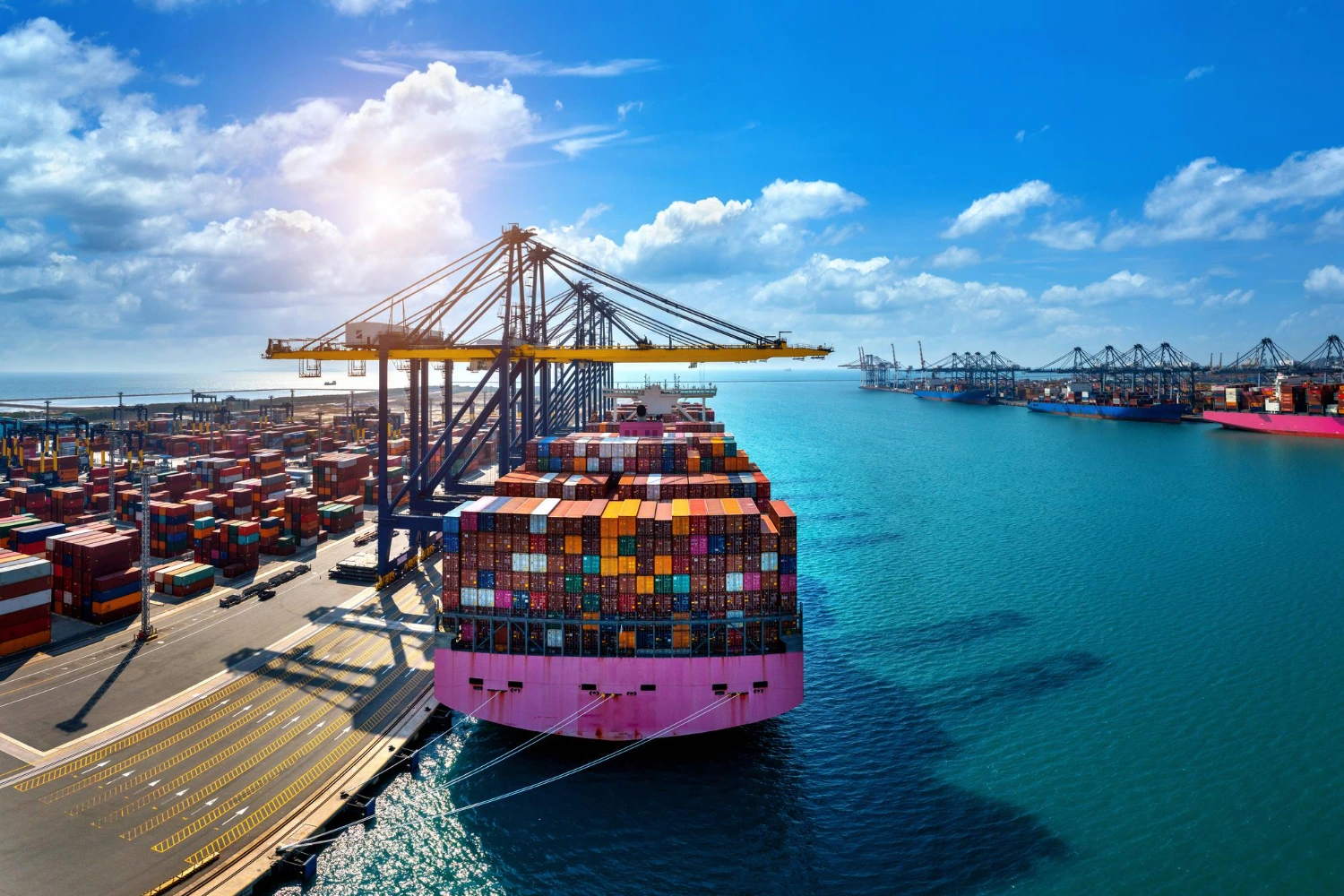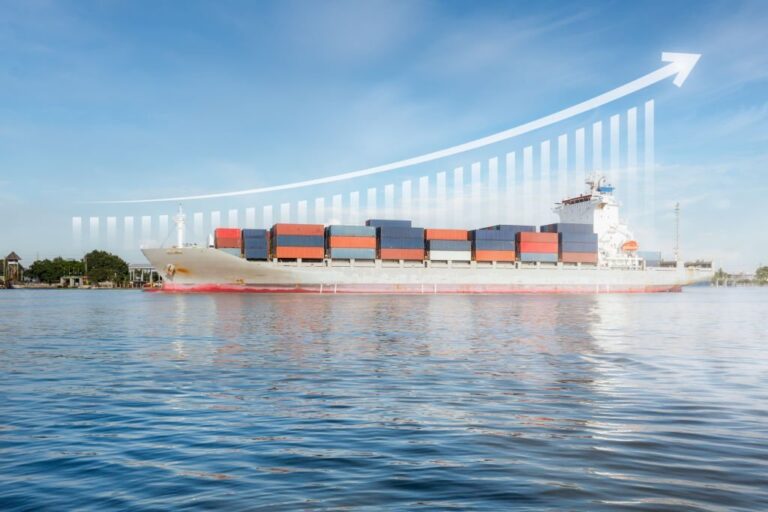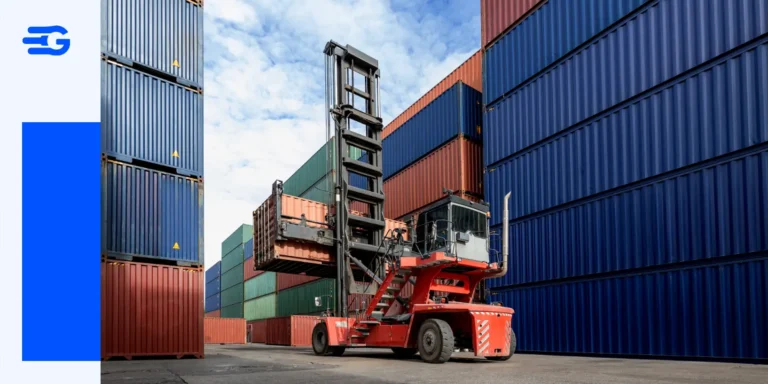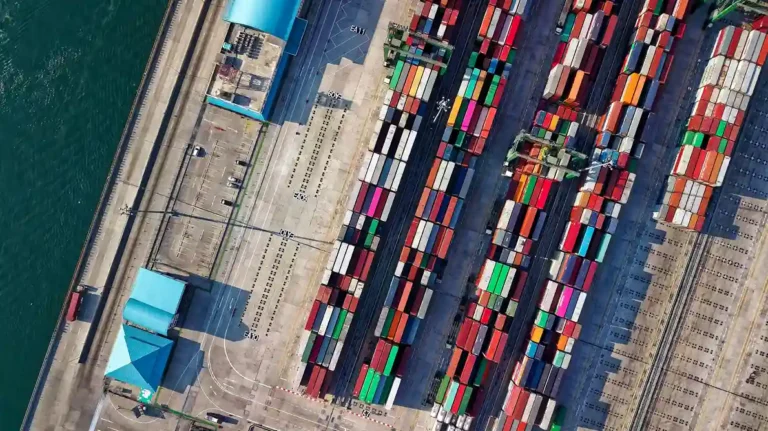Top 9 Terminal 49 Competitors: Which Container Tracking Tool Is The Best?
Container tracking tools make it much easier to keep up with global shipments. Whether you’re handling a few containers or hundreds, tracking their progress is essential for effective logistics. Terminal 49 has built a solid reputation in the industry for container tracking, but it’s not the only tool available. In this post, we’ll explore the top Terminal 49 competitors and what they bring to the table. Each of these Terminal 49 alternatives has its own unique benefits, so let’s dive in.
What to Look for in a Container Tracking Tool
Choosing the right container tracking tool or Terminal 49 alternatives requires a clear understanding of the features that will best support your supply chain operations. Here are some key factors to consider:
1. Real-Time Tracking
Real-time tracking provides up-to-date information on container location and status, helping you quickly react to potential delays or issues. Look for tools that offer live updates and notifications to keep you informed at all times.
2. Predictive Analytics
Predictive analytics help anticipate potential delays due to weather, port congestion, or other factors. Tools with predictive capabilities allow you to proactively plan around disruptions, which can prevent costly delays and improve customer satisfaction.
3. Integration with Existing Systems
Your tracking tool should integrate smoothly with your current enterprise resource planning (ERP) or transport management systems (TMS). This ensures data flows seamlessly across your supply chain, giving you a holistic view of operations without juggling multiple platforms.
4. User-Friendly Interface
A clear and intuitive interface is essential, especially for teams managing large volumes of shipments. The tool should be easy to navigate and require minimal training to use effectively.
5. Automation Capabilities
Automation can save significant time, especially when handling high shipment volumes. Look for tools that automate repetitive tasks, such as documentation, customs clearance, and notifications, allowing your team to focus on more strategic tasks.
6. Customizable Alerts and Notifications
Choose a tool that allows you to customize alerts based on your business priorities. Whether it’s delays, route deviations, or container arrivals, custom notifications ensure you’re alerted to critical updates without being overwhelmed by irrelevant information.
7. Carrier and Multi-Mode Support
If your shipments rely on multiple carriers or modes of transportation, a tool with broad carrier support and multi-modal tracking is essential. This feature is particularly useful for global supply chains where containers move across various transport methods and providers.
8. Cost and Scalability
Consider your budget, both now and as your business grows. Some tools may have a higher upfront cost but can save you money in the long run with automation and efficiency gains. A scalable solution is ideal, as it allows you to add more features or users as your shipping needs expand.
9. Reporting and Analytics
Data-driven insights can reveal bottlenecks and help you optimize your supply chain. Choose a tool with robust reporting and analyticshttps, allowing you to track key metrics, monitor performance, and make data-backed decisions.
By focusing on these factors, you can select a container tracking tool from the below list of the best Terminal 49 alternatives that not only enhances visibility but also supports the efficiency and growth of your supply chain.
Best Terminal 49 Alternatives
| Best for | Pros | Cons | |
| GoComet | Companies looking to automate logistics processes with strong cost-saving tools. | Cost-saving potential through rate benchmarkingAutomated document handlingReal-time shipment updates | May be more advanced than needed for simple trackingCustom pricing can limit accessibility for small businesses |
| Project44 | Businesses needing seamless integration and data-driven insights as they scale. | Predictive weather and delay alertsGlobal supply chain visibilityAPI integration with popular software systems | Setup complexityHigher cost for larger teams |
| FourKites | Businesses with complex supply chains needing predictive insights. | Predictive trackingDetailed analyticsEffective collaboration tools | Higher pricingMaybe overbuilt for small businesses |
| ClearMetal | Companies prioritizing AI-driven insights for better logistics flow. | AI-driven insightsStrong cross-carrier visibility | Custom pricing deters smaller usersPotential accuracy limits in complex routes |
| Shippeo | Large, multinational companies that require sophisticated ERP integration. | Real-time visibilityERP-friendly integration | High cost for small teamsComplexity in smaller applications |
| CargoSmart | Small to medium businesses needing straightforward container tracking and easy integration with other systems. | Simple to set up and useCost-effective with reliable updates | Limited customization optionsFew advanced analytics tools |
| Vizion API | Companies with unique logistics needs seeking a customizable, developer-centric tracking solution. | Tailored solutions for unique logistics needsScalable and developer-friendly | Requires developer resourcesNo pre-built dashboards or analytics |
| Ocean Insights | Businesses focused on ocean freight logistics that need accurate, timely updates on marine shipments. | Detailed vessel schedules and real-time updatesStrong marine logistics focus | Not ideal for companies needing multi-modal trackingLimited features for air or land transport |
| Descartes MacroPoint | Large companies managing complex, multi-modal logistics who need a cohesive tracking and collaboration tool. | Unified tracking across different shipping modesDesigned for supply chain collaboration | Expensive for smaller companiesInitial setup can be time-consuming |
1. GoComet
GoComet is often a top choice for container tracking due to its excellent all round efficiency. GoComet is a AI-powered visibility platform that focuses on end-to-end visibility and uses automation to streamline the entire process. One of the highlights is its real-time shipment tracking, which allows logistics teams to pinpoint their containers instantly.
An added bonus with GoComet is its easy integration with other software. This flexibility is a lifesaver for companies already using other tools. If budget matters to your business, GoComet is one of the strongest Terminal 49 alternatives. It’s particularly appealing for companies aiming to reduce supply chain costs while maintaining visibility.
Key Features:
- Real-time tracking and updates
- Freight rate benchmarking
- Automated documentation management
- AI-driven insights for cost savings
Limitations:
For companies focused solely on tracking, GoComet’s additional automation tools may be unnecessary.
2. Project44
Project44 has a strong reputation for global coverage. It’s one of the few Terminal 49 alternatives that truly provides comprehensive visibility, no matter where your container is. Project44 integrates with over 1,000 carriers, which means more consistent tracking updates across multiple regions.
Their API-first approach makes Project44 highly compatible with existing logistics systems. Companies often choose Project44 when they want a global tracking solution without losing data precision. The tool is robust enough to handle complex shipping needs, whether you’re moving cargo by air, land, or sea.
Key Features:
- Real-time shipment updates
- Predictive weather and delay alerts
- Global supply chain visibility
- API integration with popular software systems
Limitations:
Project 44’s setup can be complex and may require significant time to integrate fully. Costs can also rise for larger enterprises with diverse needs.
3. FourKites
FourKites FourKites is another powerful Terminal 49 competitor, known for its predictive intelligence. FourKites uses machine learning to forecast delays, making it easier to plan for contingencies. For teams dealing with tight deadlines, FourKites’ insights can make a huge difference.
FourKites also provides in-depth updates on the condition of shipments, including factors like temperature and humidity. If your cargo includes sensitive items like pharmaceuticals or perishable goods, FourKites’ data is invaluable. Their approach is proactive, making it ideal for companies that want insights into potential risks and disruptions.
Key Features:
- Predictive tracking and analytics
- Multi-mode transportation tracking
- Collaboration tools for stakeholders
- Real-time event notifications
Limitations:
- It can be costly for small businesses.
- The advanced analytics feature may not be fully utilized by smaller teams.
4. ClearMetal
ClearMetal takes a data-driven approach to container tracking. The tool uses AI and data analytics to provide users with highly accurate tracking information. For companies that rely on data for decision-making, ClearMetal’s insights make a noticeable difference in planning.
One standout feature is ClearMetal’s demand forecasting. It’s one of the few Terminal 49 competitors that can predict customer demand and align supply chains accordingly. This feature is a game-changer for businesses looking to optimize their shipping strategies based on customer trends.
Key Features:
- Predictive ETA adjustments
- AI-powered tracking
- Cross-carrier tracking
Limitations:
- The predictive approach may lead to accuracy issues in highly complex routes
- Custom pricing may also deter smaller companies
5. Shippeo
Shippeo stands out among Terminal 49 competitors for its user-friendly interface. It’s an ideal solution for teams who want an intuitive experience without a steep learning curve. Shippeo’s dashboard makes it simple to track shipments in real-time, even for people who aren’t familiar with technical systems.
Shippeo also excels at providing updates on estimated times of arrival (ETA). Their predictive models can be a lifesaver when scheduling inbound and outbound logistics. For companies that prioritize ease of use, Shippeo is a worthy contender among Terminal 49 alternatives.
Key Features:
- Real-time tracking with route-specific notifications
- ERP integration
- Delay predictions
Limitations:
- Features can be overbuilt for smaller teams
- Custom pricing can be costly for startups
6. CargoSmart
CargoSmart is a popular choice of Terminal 49 alternatives for those who want a straightforward setup and strong integration options. CargoSmart’s API integrations allow it to seamlessly connect with other logistics tools, making it easy to add to your current system. Their approach is built around efficiency, allowing companies to get up and running quickly.
For companies that work with multiple carriers, CargoSmart’s real-time updates keep everything organized. Their system is well-suited for smaller teams, too, making it a good Terminal 49 alternative for startups or growing businesses.
Key Features:
- Real-time shipment updates
- Strong API integrations
- Streamlined setup
- Multi-carrier tracking
Limitations:
- Primarily focused on basic tracking functions
- Lacks advanced analytics features
7. Vizion API
Vizion API is a relatively new player but has made a name for itself with its high customizability. If you’re looking for a Terminal 49 competitor that can be tailored to your unique needs, Vizion API offers plenty of flexibility. Their open API structure allows developers to mold the software to specific requirements, making it ideal for companies with unique logistics needs.
Unlike more rigid platforms, Vizion API’s customizable design fits well with specialized operations. Whether it’s integrating with custom software or adjusting to different carrier networks, Vizion API provides the freedom to adapt the tool as needed.
Key Features:
- Open API with high customizability
- Supports multiple carriers
- Real-time tracking
- Flexible integration options
Limitations:
- Lacks built-in analytics
- May require technical expertise for full implementation
8. Ocean Insights
For businesses focused on ocean freight, Ocean Insights is a great alternative to Terminal 49. Their platform specializes in tracking ocean shipments, which is invaluable for industries reliant on marine logistics. Ocean Insights integrates with several carriers, providing timely updates on container locations across the globe.
One notable feature is their “sailing schedules,” which provide detailed information about vessel schedules. This insight allows companies to prepare in advance, especially for large-volume ocean shipments. Ocean Insights may lack the versatility of other tools for multi-modal tracking, but it excels in marine-based logistics.
Key Features:
- Specialized ocean freight tracking
- Detailed sailing schedules
- Real-time container location updates
- Multi-carrier integration
Limitations:
- Primarily focused on ocean freight only
- Limited support for other transport modes
9. Descartes MacroPoint
Descartes MacroPoint is a strong Terminal 49 competitor, especially for businesses handling multi-modal shipping. This Terminal 49 alternative covers air, sea, and land, making it a solid choice for logistics teams managing diverse transportation modes. It’s highly adaptable and designed to provide visibility across every segment of the supply chain.
The platform is built for collaboration, allowing shippers and carriers to share information easily. Descartes MacroPoint’s real-time visibility helps teams stay on the same page. Its ability to unify multi-modal tracking makes it ideal for companies that need a comprehensive logistics solution.
Key Features:
- Multi-modal tracking across air, sea, and land
- A collaborative platform for shared visibility
- Real-time shipment tracking
- Integration with ERP and logistics systems
Limitations:
- Requires setup time
- Higher price point
Conclusion
Choosing the right container tracking tool depends on your company’s unique needs. GoComet is often a favorite for its all round efficiency. While FourKites and Project44 also offer predictive intelligence and global coverage, GoComet is the complete package. If user-friendliness is a priority, Shippeo is worth considering. For businesses requiring customization, Vizion API is an excellent choice. CargoSmart and Ocean Insights serve well for teams with simpler needs, while ClearMetal brings AI-driven insights, and Descartes MacroPoint suits multi-modal tracking.
Each of these Terminal 49 competitors has strengths that make them a solid choice. It all comes down to finding the one that aligns with your logistics goals.
Ready to track smarter and save more? Try GoComet’s real-time tracking and instant cost comparisons!




